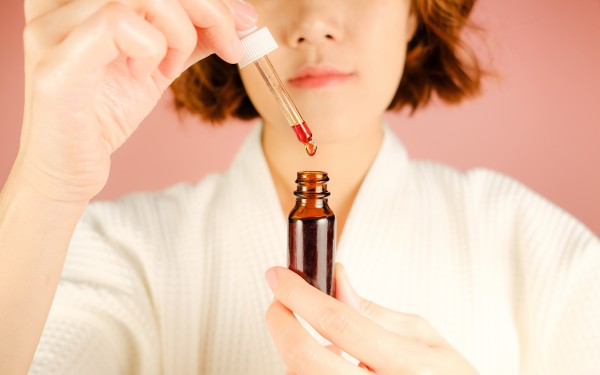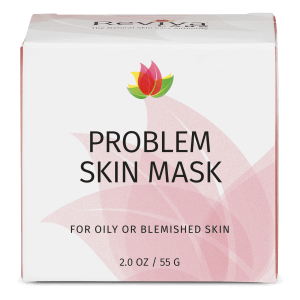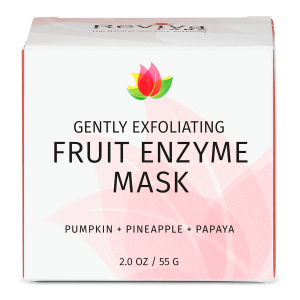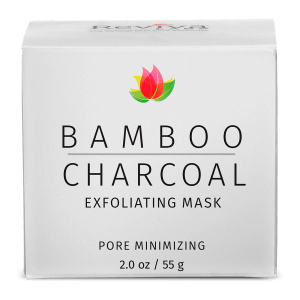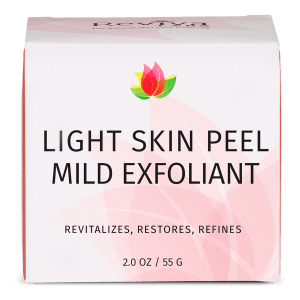Reviva Labs, Skin Care, Webinars
The power & benefits of regular exfoliation – Talking Skincare, April 2023, by Reviva Labs
Webinar by Reviva Labs recorded April 27, 2023 - Exfoliation helps the skin look more youthful and radiant by sloughing away dead skin build up to reveal younger skin cells underneath. As a result, follow-up treatments work better and skin is healthier overall. In this session of Talking Skincare, we’ll reveal the deeper benefits of regular exfoliation on your complexion.

Hi, I’m Elaine, today’s Talking Skincare host for The Power & Benefits of Regular Exfoliation
So, what is exfoliation?
Exfoliation is the process of removing dead skin cells by either physical or chemical methods.
Physical exfoliators manually scrub away dead skin cells. Things like body brushes, loofahs, and cleansing products featuring tiny beads or abrasive ingredients. The challenge, physical exfoliation can irritate or scratch the skin.
Chemical exfoliators use chemicals, generally acids, to break the bonds holding cells together at the skin’s surface. This allows them to gently slough away.
The most common types of exfoliating acids fall into two categories AHAs and BHAs.
Alpha hydroxy acids (AHAs) are water-soluble acids derived from foods. Glycolic acid comes from sugar cane; lactic acid comes from milk; and citric acid comes from fruit. Though most cosmetic acids are lab made to ensure their consistency and efficacy. Regardless, the end result, each is a chemical exfoliator.
Beta hydroxy acids (BHAs) are generally oil soluble. The most common BHA is salicylic acid. This acid helps with pimples, skin redness, and irritation while also reducing excess oil production. These properties make it a popular exfoliant when treating acne prone skin.
Wondering why you need to exfoliate?
As we age, the cell renewal process slows down. It takes longer and longer for new cells to replace the old ones. Simultaneously, collagen and elastin production also slow. This combination leads to more fine lines, wrinkles, and sagging skin.
Regular exfoliation keeps your skin cell renewal on the fast track.
By regularly exfoliating you’ll prevent the build-up of dead skin cells that can leave skin looking dull, dry, and flaky. Regular exfoliation sloughs away these dead skin cells.
Exfoliation helps prevent clogged pores and breakouts. Blackheads and whiteheads are pores that have become clogged with dead skin, oil, and dirt. Bacteria then moves in leading to pimples and acne. Regular exfoliation ensures pores are kept clear.
Routine exfoliation can increase collagen production. Since collagen and elastin work together to keep skin strong and resilient, promoting collagen production is key to minimizing fine lines and sagging skin.
The American Academy of Dermatology found that topical skin care applied after exfoliation works better. Without dead skin cells blocking the way, serums and moisturizers are more readily absorbed and are more effective.
Regular exfoliation helps improve skin texture, reduces the appearance of fine lines and wrinkles, prevents acne breakouts, and improves the effectiveness of other skincare products. That’s why weekly exfoliation should be an essential part of any skincare routine.
Thank you for tuning in to Talking Skincare with Reviva Labs. If you want to learn more, join us at 3pm Eastern Time via Instagram LIVE.
And remember, you can always schedule a free 15-minute virtual skincare consultation simply by visiting our website revivalabs.com. And sign up for future Talking Skincare webinars.
Until next month, if your skin feels rough you’re not exfoliating enough!






